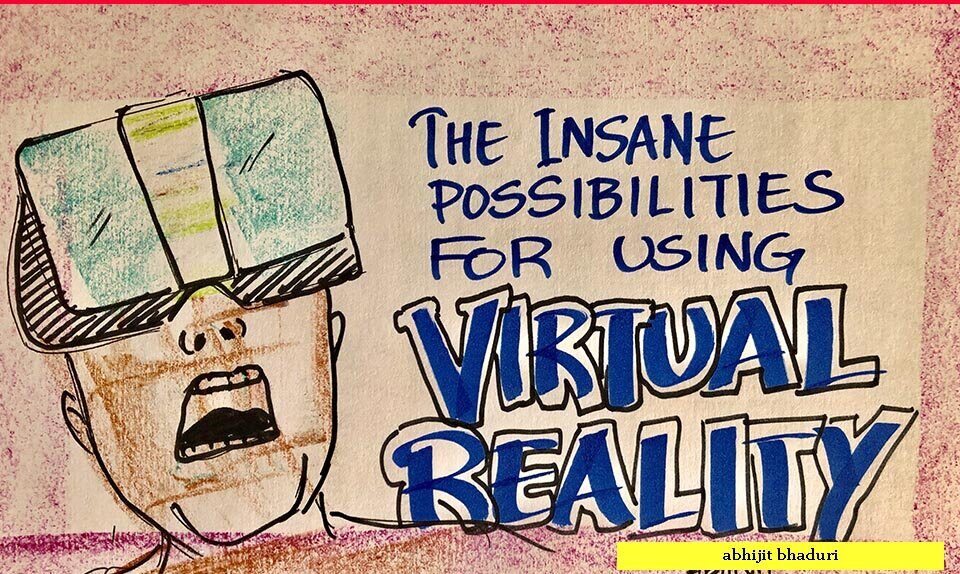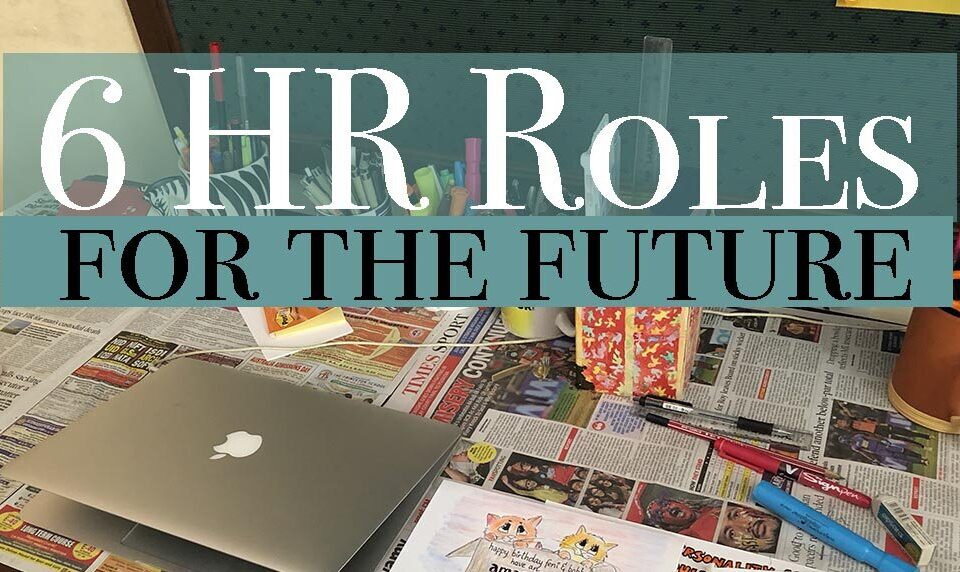Computers and automation saw the rise of the “knowledge worker”. A knowledge worker was a person whose job involved handling or using information. With computers increasingly taking over such jobs, those who are skilled in working with people will become more prized. The future belongs to people who are more emotionally intelligent. This may be the era of the “relationship worker” – someone who can handle complex human relationships.
Do only the poor work for money? After all, I have seen even the highest paid employees bargain with clenched teeth about an amount that would be less than a percentage of their earning. When someone says, “It is not about the money, it is the principle of the thing that I care about”. You can bet that it is indeed only about the money. Or are we missing the point?
The biggest disruption will be in the Learning & Development space from schools to the workplace. History and Geography taught through VR will allow the student to experience what it feels like to be inside the Pyramid of Giza in Egypt and in the rainforests of Amazon in one afternoon. Imagine the transformative power of bringing this education to a child in a remote village or the slums. How dramatically it could be what education is not.In the corporate world it could be used to simulate the negotiation scenario and teach the team ahead of time what challenges to avoid. If you dread speaking in public, wear the VR headset and practice giving your speech in front of your CEO or even an auditorium full of hecklers (if you are an unpopular politician). VR could help people get over their fears by building their immunity with progressive increases in levels of difficulty.
Just as the debate in the previous century was all about an ideological debate between the communist framework or capitalist, the debate for the twenty first century is all about where each country is on that continuum of being open versus closed. It is not a West vs East debate. Many countries in the West are surprisingly close when it comes to data or talent and very conservative when it comes to laws regarding venture capital. People leverage the hyper-connected world to bypass these limitations. Today people are not bound by geography and anyone can use the net to find jobs or learn or show case their talent.
The idea in brief: Leaders have to manage the past, present and future simultaneously. The three boxes represent these three orientations. In the book The Three Box Solution Vijay Govindrajan draws a parallel to the triumvirate of the Hindu faith – Vishnu, Shiva and Brahma. Vishnu is the god of preservation, Shiva is the god of destruction and Brahma is the god of creation. These represent the three roles of a leader.
Elon Musk, co-founder of PayPal and CEO of Tesla Motors, wants to establish colonies on other planets like Mars. Back in 2012 Planetary Resources was set up by Google to develop flying robots that will dig up precious minerals from other planets and get them back. There are billionaires who are funding research in making humans immortal or making fresh water available to all. Bill Gates through his Foundation aims to by 2030 eradicated four diseases from Earth.It all starts with a dream – being able to imagine and envision something which has no precedent. The opportunities are all as big as our digital dream. The next decade will be about turning those dreams to reality.
I have heard of many people who use only their gut to evaluate a candidate. Remember by tossing a coin to make a hiring decision, there is fifty percent chance of the candidate being very successful - statistically speaking. By studying the successful hires made by the C-Suite of a top organization they were horrified to discover that their successful hiring record was far below the coin toss method. How did this happen? They had never tracked the leaders' skills in interviewing. Leaders were using their own heuristics to choose candidates. When the new hire turned out to be a poor performer, they blamed the candidate and never for a minute stopped to think that the decision to hire that person was theirs.
Traditionally, organizations have worked based on one rule that every employee of the organization had to follow. Then came the era of five or six sets of rules that applied to five or six types of employment contracts that were offered by an organization. What if each individual employee had their own unique contract based on all the possible variables they could choose from. Today, several startups and digital disruptors have very few employees. For example, Uber has a policy of having only 3 employees in a city who manage the entire operation from partnering with drivers and managing them and serving clients. Xiaomi sold a million handsets in in India with only 75 employees. Will these organizations create new models of performance management and rewards? Will they grow their own talent by hacking new ways of learning at a rapid pace or will they buy out talent on a pay per use model? The possibilities are immense. Here are six roles your organization should think about.
Startups have open offices – mostly. Everyone from the twenty year old founder to the twenty one year old employees are all sitting around in open cubicles. It is a visible symbol of a non-hierarchical work culture. In a country where hierarchy is everywhere, this comes across like a breath of fresh air and becomes a great draw while hiring. But are they really productivity boosters (because the boss can keep an eye on you) or creativity enhancers?









